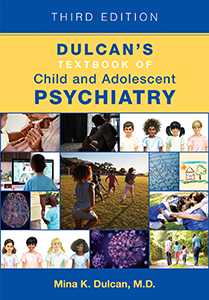Chapter 34.Medications Used for ADHD
Sections
Excerpt
Attention-deficit hyperactivity disorder (ADHD; see also Chapter 10, “Attention-Deficit/Hyperactivity Disorder”) is a common neuropsychiatric disorder that has an estimated worldwide prevalence of 5%–9% (Polanczyk et al. 2014). ADHD typically has an onset in childhood and often persists into adulthood. The symptoms include developmentally inappropriate motor activity, impulsivity, and difficulty maintaining and shifting attention, which result in significant and often cumulative impairments in family, academic, and social functioning. Treatment includes behavioral and educational strategies for associated problems, but the core symptoms of ADHD are typically treated with medications. Stimulant medications are the most widely used and have a long-established track record for safety and efficacy. There are also nonstimulant agents available that can be used either as monotherapy or in combination with a stimulant (Chan et al. 2016; Connor and Steingard 2004; Cortese et al. 2018; Dopheide and Pliszka 2009; Steingard et al. 2019).
Access content
To read the fulltext, please use one of the options below to sign in or purchase access.- Personal login
- Institutional Login
- Sign in via OpenAthens
- Register for access
-
Please login/register if you wish to pair your device and check access availability.
Not a subscriber?
PsychiatryOnline subscription options offer access to the DSM-5 library, books, journals, CME, and patient resources. This all-in-one virtual library provides psychiatrists and mental health professionals with key resources for diagnosis, treatment, research, and professional development.
Need more help? PsychiatryOnline Customer Service may be reached by emailing [email protected] or by calling 800-368-5777 (in the U.S.) or 703-907-7322 (outside the U.S.).



